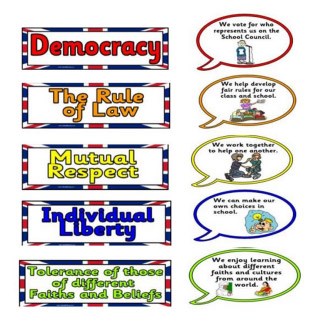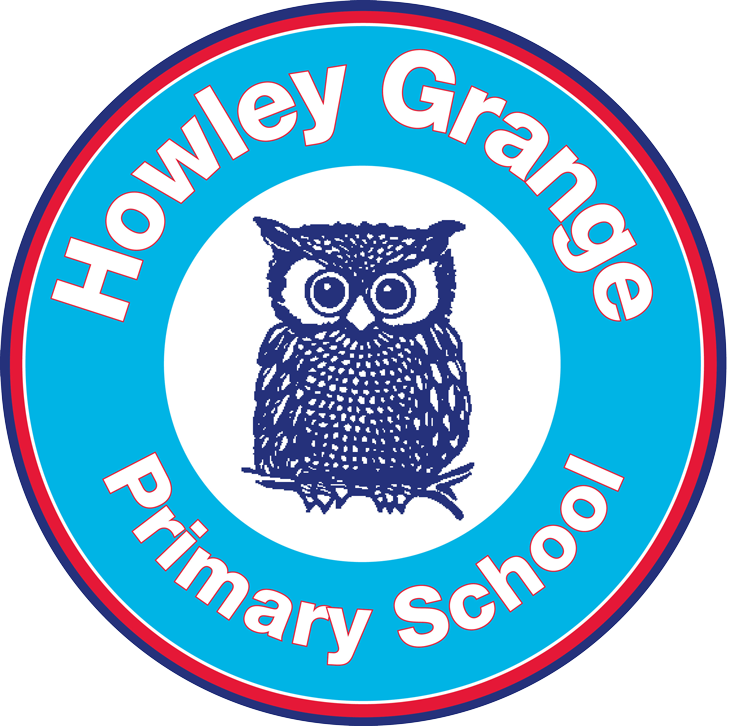British Values

The DfE have recently reinforced the need "to create and enforce a clear and rigorous expectation on all schools to promote the fundamental British values of democracy, the rule of law, individual liberty and mutual respect and tolerance of those with different faiths and beliefs." The government set out its definition of British values in the 2011 Prevent Strategy.
At Howley Grange these values are reinforced regularly and in a variety of ways through our Respect for All ethos and across the curriculum.
The following are some of the examples of how Britsh Values are actively promoted:
Democracy:
At Howley Grange, pupils have the opportunity to have their voices heard through our regular School Council and Eco Committee meetings. We meet in mixed age groups to discuss issues and to suggest ways to improve the life of the school, for example playground activities, clubs, allotment developments etc. We teach how public services operate and include in the curriculum the advantages and disadvantages of democracy. We teach pupils how they can influence decision making and we give them opportunities to do so.
Examples
Year 1 - Superhero Topic - Real life heroes - Police, Fire, Doctor
Year 2 - Debate - Where would you choose to live?
Year 3 - Enterprise Projects
Year 4 - World War 2
Year 5 - Pupils2Parliament
Year 6 - Evolution
The Rule of Law:
The importance of laws, rights and responsibilities are consistently debated, agreed and reinforced. Pupils are taught the value and reasons behind laws, that they govern and protect us, the responsibilities that this involves and the consequences when laws are broken. Visits from authorities such as the Police and Fire Service are regular parts of our calendar and help to reinforce this message. We have a School code of conduct built around Respect for All. Children are involved in the creation of class charters and are encouraged to distinguish between right and wrong. We encourage children to understand that living under rule helps. We also encourage the exploration of civic and criminal law and how this differs across religions.
Examples
Year 1 - Class charters that children set
Year 2 - Guy Fawkes and the Great Fire
Year 3 - Personal Ten Commandments
Year 4 - Circle Time - Consequences
Year 5 - Playmakers Code of conduct.
Year 6 - Prefect and Subject Ambassador Applications.
Individual Liberty:
Within school, pupils are actively encouraged to make choices, knowing that they are in a safe and supportive environment. As a school we educate and provide boundaries for young pupils to make choices safely, through a provision of a safe environment and empowering education. Pupils are encouraged to know, understand and exercise their rights and personal freedoms and advise how to exercise these safely, for example through our Online-Safety and PSHE lessons. Whether it is through choice of challenge within learning, participation in extra-curricular clubs and opportunities, pupils are given the freedom to make choices. We aim to develop self esteem, self confidence and self knowledge. Pupils understand they have a responsibility for their behaviour and that they model freedom of speech through participation. Our curriculum challenges stereotypes and we are a school that respects rights of individuals.
Examples
Year 1 - Ladder behaviour chart.
Year 2 - Heroines Challenging Stereotypes.
Year 3 - Crazy Celts and Ruthless Romans, imposing on others.
Year 4 - The Smiling Coast-Wants or Needs?
Year 5 - Martin Luther King Project - Freedom of speech.
Year 6 - Independent research projects.
Mutual Respect and Tolerance:
Part of our school ethos and behaviour policy revolves around core value Respect, and pupils have been part of discussions and assemblies related to what this means and how it is shown. Our School code of conduct embodies our belief in mutual respect which was commented on in our 2013 Ofsted report. We encourage respect for differences and have links with faith communities. We encourage personal thinking skills and discuss the differences between people, faith, ethnicity, disability and gender.
Examples
Year 1 - Inclusion stories.
Year 2 - Forest School Team activities.
Year 3 - Different Families, Same Love projects. Stonewall Charity.
Year 4 - Pupils discuss own religions - 'Show Commitment' topics.
Year 5 - Thinking school problem solving.
Year 6 - Evolution projects.



